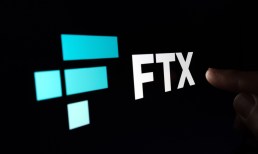The Redwood City, California, company said revenue grew 21% year over year to $87.2 million in its fiscal first quarter ending July 31, beating analyst expectations. Subscription revenue, which is the bulk of C3.AI’s business, increased 20% to $73.5 million.
“We’re off to a solid start for fiscal year 25,” said CEO Thomas Siebel on the company’s earnings call. “This quarter marked our sixth consecutive quarter of accelerating revenue growth, reflecting our high levels of customer satisfaction and increasing demand for enterprise AI applications.”
C3.AI, which provides AI software for large organizations across industries like energy, manufacturing and financial services, has positioned itself as a pioneer in the enterprise AI market. The company was founded in 2009, long before the current AI boom, with a vision of developing a software platform to help organizations leverage cloud computing, the Internet of Things, big data and predictive analytics.
“C3.AI is the original enterprise AI, hard stop,” Siebel declared. “We invested thousands of person-years over a decade building the C3 AI platform, the first reference architecture platform for enterprise AI.”
The company offers over 90 prebuilt enterprise AI applications addressing various industry-specific use cases. Siebel said C3.AI is seeing “incredible results” and high customer satisfaction scores as businesses derive tangible value from its AI solutions.
Advertisement: Scroll to Continue
Notably, C3.AI reported strong traction in the public sector, signing 25 agreements with state and local government agencies in the quarter. “We just fell into a gold mine there,” Siebel said, adding that the public sector opportunity was largely unanticipated.
The company closed 71 agreements in Q1, including 52 new pilot projects — a 117% year-over-year increase in pilot count. C3.AI’s model typically involves starting with a three- to six-month paid pilot before converting to a full production contract.
Siebel highlighted success stories with customers like Shell, which he said has over 100 C3.AI applications in development or deployment and estimates $2 billion in annual benefits from the partnership. Another client, Con Edison, is projecting over $3 billion in benefits over 20 years from its smart grid project with C3.AI.
The company is also seeing strong demand for its new generative AI offerings, launched earlier this year. In the quarter, C3.AI signed 40 agreements related to generative AI with cloud partner Google.
“Our generative AI business is surprisingly diverse, with many candidly unanticipated use cases across the board in a wide range of industries,” Siebel noted.
C3.AI maintained its full-year revenue guidance of $370-390 million, implying 19-27% growth. The company’s stock has been volatile this year amid the broader AI frenzy as investors debate the long-term winners in enterprise AI.
C3.AI faces competition from major cloud providers and other enterprise software vendors rushing to embed AI capabilities. But Siebel argued that many legacy software companies are simply “rebranding their 20th-century software stacks with AI on the box” without truly re-architecting for AI.
He positioned C3.AI’s prebuilt AI applications as a key differentiator, allowing customers to quickly configure and deploy proven solutions rather than undertaking long, complex development projects.
“In this current cacophony of AI market hype, C3.AI is achieving among the highest levels of customer satisfaction for value realized in the enterprise software world,” Siebel claimed.
The company still posted a non-GAAP operating loss of $16.6 million in Q1 as it invests heavily in growth. But Siebel said profitability is now “simply a function of scale” as revenue growth outpaces expense growth.
C3.AI projected it would be cash flow positive in Q4 and for the full fiscal year 2025. The company ended Q1 with $762.5 million in cash and investments.
Looking ahead, Siebel said C3.AI is focused on expanding sales capacity and growing in North America, Europe, and the public sector. However, he cautioned that modeling the business remains challenging given the rapidly evolving AI landscape.
“It’s very difficult for people who are assessing these companies to really understand the complexity of what’s going on in the AI market,” Siebel said. “This is not a simple business, where in this new world of AI, it’s really complex.”
For all PYMNTS AI coverage, subscribe to the daily AI Newsletter.




